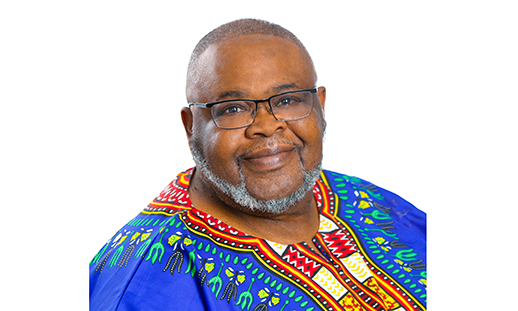Working to create a welcoming environment for all

After becoming the Nova Scotia Community College’s first Coordinator of African Canadian Student Services in 1995, Archy Beals set himself a goal: to work himself out of a job in five years.
“What I wanted to do was to provide tools for students in the community and for the College so that it became first nature for African Nova Scotian students to be automatically accepted and to have faculty who look like them,” he recalls. “Essentially, the College would not need designated positions to reflect the population we serve.”
More than 25 years in, Archy is still working toward that goal. It has not always been easy, but Archy’s optimism and his passion for what he does have kept him committed to his job, and to making progress, to the point where he passed up the opportunity to retire in 2020. “I’m able to see students transformed,” he explains. “That’s what keeps me here—the opportunity to provide them with support.”
Archy has also witnessed, and contributed to, the transformation of the College over the years, resulting in more diversity and inclusion. He is now one of five African Canadian Student Supports Advisors. There is diverse representation on both the Board of Governors and the NSCC Foundation board. A soon-to-launch Black Community Council is working toward systemic change and improvements in economic and social prosperity among African Nova Scotians. The office of Human Rights, Equity and Inclusion is exploring further opportunities to remove systemic barriers and create a more welcoming environment for all equity deserving diverse communities.
Archy is further encouraged by the programs that have been launched specifically for African Nova Scotian learners. They include an Africentric Early Childhood Education program and a cohort of students that have graduated through the Irving Shipbuilding Centre of Excellence Pathway for African Nova Scotians program. All 20 students enrolled in the cohort graduated from the two-year welding diploma program. He says these graduates are working in the industry, providing for their families and there is the potential they could earn their red seal and return to the College to teach. Archy adds that the 20 learners who graduated in 2020 wanted to pay it forward for future students. They started a bursary for African Nova Scotian learners—one for a male, one for a female—that they hope to continue in future years.
For all the progress made through these and other initiatives, there is a recognition across NSCC that more needs to be done, and a desire to do it. Jill Provoe, Executive Director of Human Rights, Equity and Inclusion says the office is setting the stage for substantive work related to equity. “Equity is about redress, about recognizing harms done in the past, and about fundamentally changing systems,” she says. “That advances our focus from diversifying the College to ensuring that the opportunities for everyone to succeed are the same, and we are removing systemic barriers to achieving that.”
As for Archy, he continues to contribute to these advances and the conversation about them because they lay the foundation for building a better, more inclusive college. “I think there's a lot that we can do within the college and a lot the college can do for marginalized communities,” he says. “My hope is that we continue to go onward and upward together.”

